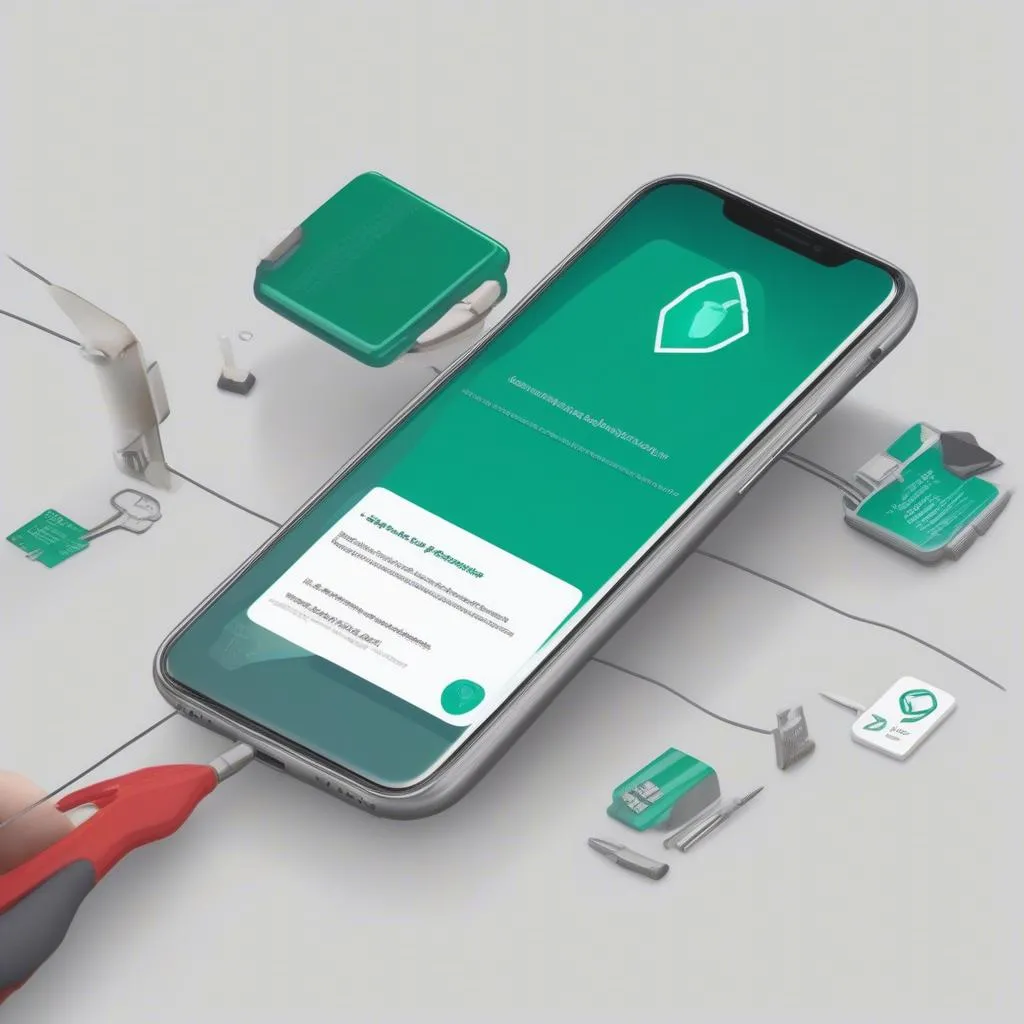A persistent Subaru brake warning light can be a frustrating and potentially dangerous issue. Whether you’re driving a Legacy, Outback, or another Subaru model, understanding why this light stays on and how to fix it is crucial for your safety and peace of mind. This guide provides a comprehensive overview of the common causes, troubleshooting steps, and potential solutions for a Subaru brake warning light that refuses to turn off. 1995 subaru legacy wagon brake warning light stays on
Common Causes of a Subaru Brake Warning Light
Several factors can trigger the brake warning light in your Subaru. Identifying the root cause is the first step toward resolving the issue.
Brake Fluid Level Low
Perhaps the most common reason for the brake warning light is low brake fluid. The brake system is hydraulic, meaning it relies on fluid to function. If the fluid level drops too low, the light will illuminate to warn you of a potential problem.
Worn Brake Pads
Brake pads are essential components that create friction to slow or stop your vehicle. Over time, these pads wear down. When they reach a critical thickness, a sensor triggers the brake warning light, signaling the need for replacement.
Faulty Brake Sensor
Sometimes, the brake warning light might illuminate even when the brake pads and fluid levels are fine. This can be due to a faulty brake pad wear sensor. These sensors can malfunction due to damage, corrosion, or even just age.
Troubleshooting Your Subaru’s Brake Warning Light
Follow these steps to diagnose the problem:
- Check the brake fluid level. Locate the brake fluid reservoir under the hood and check the fluid level. If it’s low, add brake fluid until it reaches the “FULL” line.
- Inspect the brake pads. Visually examine the brake pads through the wheel spokes. If they appear thin or worn down, they likely need replacement.
- Test the brake pedal. Does it feel spongy or unusually soft? This can indicate air in the brake lines or a more serious issue. 2002 outback brake warning light stays on
Why is my Subaru brake light flashing?
A flashing brake light, along with the constant warning light, often signals a more serious problem like a malfunctioning ABS system.
Solutions and Repairs
Based on your troubleshooting findings, you might need to perform the following:
- Add brake fluid: If the fluid level is low, simply add the correct type of brake fluid for your Subaru model.
- Replace brake pads: Worn brake pads require immediate replacement to ensure safe braking performance.
- Repair or replace the brake sensor: A qualified mechanic can diagnose and replace a faulty brake sensor.
- Bleed the brake lines: If you suspect air in the brake lines, bleeding them is necessary. 2014 subaru outback and brake light warning
“Regular brake inspections are crucial for preventative maintenance,” advises John Smith, a certified automotive technician with 20 years of experience. “Addressing brake issues early can prevent more costly repairs down the line.”
Remote Diagnostics and Software Solutions
Modern vehicles, including many Subaru models, can benefit from remote diagnostics and software updates to address certain brake system issues. Some issues can be diagnosed and resolved by updating the car’s software. lexus is250 brake warning light
“Remote diagnostics can save time and money by pinpointing the exact issue before any physical work begins,” adds Jane Doe, a software engineer specializing in automotive diagnostics.
Conclusion
Addressing a Subaru brake warning light promptly is paramount for safety. By understanding the common causes and following the troubleshooting steps outlined in this guide, you can identify the problem and take appropriate action. Remember, if you are unsure about any aspect of brake repair, consulting a qualified mechanic is always recommended. Ignoring a persistent subaru brake warning light can lead to serious safety risks. 07 quest warning brake light fault
FAQ
-
Can I drive my Subaru with the brake warning light on? It’s not advisable. The light indicates a potential problem that could compromise your braking ability.
-
How often should I check my brake fluid level? Check your brake fluid level at least once a month, and more frequently if you notice any changes in brake performance.
-
How long do brake pads typically last? Brake pad lifespan varies depending on driving habits and conditions, but typically they last between 25,000 and 70,000 miles.
-
What type of brake fluid should I use in my Subaru? Consult your owner’s manual for the correct brake fluid type. Using the wrong type can damage your brake system.
-
Is it expensive to replace a brake sensor? Brake sensor replacement is typically a relatively inexpensive repair.
-
What is ABS and why might it be causing my brake light to flash? ABS stands for Anti-lock Braking System. A flashing light can indicate a problem with the ABS module or sensors.
-
Can remote diagnostics fix all brake problems? While remote diagnostics can identify many issues, physical inspection and repair are often necessary.

